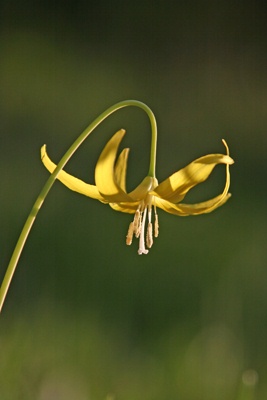All Nonfiction
- Bullying
- Books
- Academic
- Author Interviews
- Celebrity interviews
- College Articles
- College Essays
- Educator of the Year
- Heroes
- Interviews
- Memoir
- Personal Experience
- Sports
- Travel & Culture
All Opinions
- Bullying
- Current Events / Politics
- Discrimination
- Drugs / Alcohol / Smoking
- Entertainment / Celebrities
- Environment
- Love / Relationships
- Movies / Music / TV
- Pop Culture / Trends
- School / College
- Social Issues / Civics
- Spirituality / Religion
- Sports / Hobbies
All Hot Topics
- Bullying
- Community Service
- Environment
- Health
- Letters to the Editor
- Pride & Prejudice
- What Matters
- Back
Summer Guide
- Program Links
- Program Reviews
- Back
College Guide
- College Links
- College Reviews
- College Essays
- College Articles
- Back
Grandmother Amelia MAG
I interviewed my grandmother, Amelia . Born in Havana, Cuba, in1935, she was raised by her parents, and has one brother. She married my grandfather (referred toas “Tata” in this interview) in 1957, four months after they met.
Whatwas Cuba like?
Havana was a beautiful, cosmopolitan city full of lights. Since I worked atthe National Bank, I was aware of the interest other countries had in doing business with Cuba ...I don’t mean to intervene, I mean investing foreign capital, but always with people who hadCuban capital, not as Fidel likes to portray it, claiming that everyone wanted to steal everything.It was good, healthy business.
Havana had everything you could possibly ask for: food,wines, fabrics, medicine, doctors, etc. The middle class had ample buying power, living wasgood.
Can you tell me about the Revolution?
Castro was one of yourgrandfather’s classmates. In school, it was always said that Castro was undisciplined; healways wanted to have his way and he was not a good friend.
While Batista was in power,everything flowed: money, jobs, food, etc. Fidel attended a university called Colegio deBelén, where he was treated well, but that’s where he started having problems. He wasa nonconformist and resented many things. Maybe it was because his mother was a very poor woman whodid others’ laundry to feed her children.
I’m not sure when he became anonconformist, but when he met Che Guevara, he started going against capitalism even more, againstmoney, and everything that normally flowed within a country.
At the beginning, Che andFidel were united even though they always had their problems. If only your grandfather were alive,he could tell you so many wonderful stories ...
That’s how the Revolutionbegan. Castro started brainwashing the gájiros (farmers, who were usually poor), asking them whythere were so many millionaires and they had so little. Those who were unhappy joined him. Eventhough the economy was doing well when the Revolution began, Batista tried to control it and he putFidel in prison because of all those he had killed. Batista eventually let Castro go, even thoughthat caused a lot of tumult.
After that, Castro said he would not continue what he hadstarted, that he would leave the country. But he ended up coming back and that’s when theRevolution began. Most joined because they agreed with Castro’s ideals. He would go to themountains and wear rosaries to try to convince people of his good intentions.
That’s pretty impressive, everything that happened. I would love to go toCuba.
I would love to go too; my children would all love to go, but I don’t darebecause it’s so unsafe. There’s no security, especially for those of us bornthere.
When was it that you and Tata decided it would be better toleave?
When we realized that we could no longer live like decent Catholics. The countrywasn’t calm or stable. No matter where you lived, the milicianos (those closely involved inthe Revolution who worked for Castro) would come and search your house without a warrant. They onlyneeded to suspect that you were anti-revolutionary to search. You had to let them in and they wouldlook through everything.
We had two chances to get out. The first was on a cargo ship, whichdidn’t work out because I was pregnant, so we delayed our departure for a year and a half.During that time, we were able to obtain visas from friends who had already left for Mexico. Thevisas arrived three months before Fidel demanded that anyone who was leaving the island had to beclaimed by someone on the outside. Our friends even guaranteed Tata a job.
We had to payfor our tickets in dollars, which was somewhat of a problem. Thankfully, we managed to round up themoney and leave, but not before we presented the government with the keys to our house, all ourpapers, and all our belongings. It was part of the deal: if you were leaving, you had to leave allof your property behind.
What year did you leave Cuba?
We left in 1964,after I’d had my first three children. The fourth was born in Mexico, which is where we livedfor 10 years.
That must have been really hard.
Yes, I’ve had some verydifficult moments in my life, but I’ve always had my parents, friends and your grandfather,and I have always felt that God was with me and has helped me to overcome everyobstacle.
What was your worst moment?
The worst was when I had to take theplane with my family and had to leave my mother and father behind in Cuba without knowing when Iwould see them again. The saddest moments were when I left Cuba and when your grandfatherdied.
Did your parents ever get out of Cuba?
Yes, once we arrived in Mexicowe were able to claim them, just as our friends had claimed us.
Is there anythingyou regret?
No. I always thank God for everything He has given me, the good and the bad.

Similar Articles
JOIN THE DISCUSSION
This article has 1 comment.

0 articles 0 photos 12292 comments